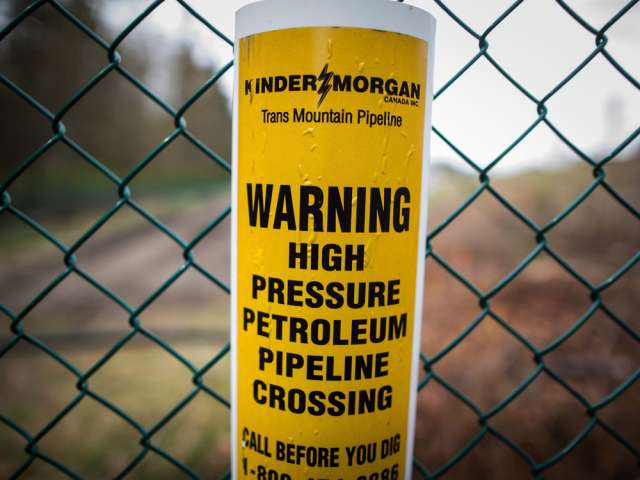
TORONTO/CALGARY – It’s a Friday afternoon in January and Pierre Gratton, president of the Mining Association of Canada, is tired of responding to angry emails from people he doesn’t know.
For the second time in as many months, his inbox and phone line were flooded with messages — some polite, some he calls “hate mail” — from people opposed to Bill C-69, the planned overhaul of the federal environmental review process.
Few pieces of legislation stir up raw emotion within the resources sector as much as those connected to environmental reviews, which require companies to study the impacts of their projects, sometimes at a cost of hundreds of millions of dollars and sometimes opening them up to legal challenges that can create years-long delays.
If passed, Bill C-69 would change who can intervene in hearings about building energy pipelines, mines or even power lines. It also would change who must be consulted and what impacts must be studied before construction can begin. The bill carries the potential to reshape Canada’s natural resources economy.
Such legislation typically pleases special interest groups such as environmentalists, but industry usually takes a dimmer view. Yet for much of the past year, the country’s resources sector has been at odds on what to make of the bill, often splitting along geographic and sector lines.
The country’s largest mining companies, with an Ottawa-based spokesman in Gratton, have mainly viewed the bill with cautious optimism and sought to push it forward, while the oil and gas sector, based out west, has been the most vocally opposed and consistent in demanding changes, often describing it as an industry killer.
Somehow, in the warfare, Gratton emerged as a human target for fringe groups that have waded into the fray with vitriolic fervour.
“It’s a bit insulting and it gets under the skin,” he said. “The point is, if my members had a different view, I would be saying something different.”
But even as the mining association advocates for the bill, Gratton acknowledges fault lines within the organization and larger divisions within the resources sector, especially between the oil and gas and mining sectors. After months spent working at cross purposes, the two sides now appear to be moving closer to a consensus: they’ll accept the bill if it is passed with various amendments.
“This has been hard,” Gratton said. “Probably the hardest public policy file I’ve ever worked on. I’ve never before seen sectors at odds and trying to resolve differences like this. It has been tough.”
As shown by the protests that dogged the Trans Mountain Pipeline expansion in British Columbia and the Muskrat Falls hydroelectric dam in Labrador, the resource industries have much to gain or lose from the way Bill C-69 is ultimately crafted.
But the industry battle lines over the bill were drawn in September 2018 when Gratton published an op-ed expressing his association’s support for the legislation.
“Most of our traditional mining members have looked at this bill and said this should be better,” he told the Financial Post. “It’s not perfect, but we’re not going to wait for nirvana.”
I’ve never before seen sectors at odds and trying to resolve differences like this. It has been tough
Pierre Gratton, president of the Mining Association of Canada
A month later, Canadian Energy Pipeline Association chief executive Chris Bloomer — along with the heads of the Chemistry Industry Association of Canada, Association of Canadian Port Authorities and others — published a contradictory op-ed that said major resource investments “will become few and far between” if the bill passes.
Later that fall, as both groups advocated for their different positions, controversy surrounding the Trans Mountain pipeline expansion erupted and brought national attention to the environmental review process.
The project, commonly known as TMX, proposes to twin an existing pipeline that carries crude and refined oil from Alberta to the West Coast, allowing producers to ship product to new markets and, hopefully, escape the current trap in which the vast majority of Canadian oil is sold into the U.S. at a steep discount.
Originally approved in 2016, TMX successfully withstood 17 consecutive court challenges from plaintiffs such as the City of Vancouver and several indigenous communities that questioned its environmental and other impacts.

But in the 18th court challenge, a decision on which was rendered in August 2018, the Federal Court of Appeal put a halt to all construction work and overturned the project’s approval. The court found the federal government — which in May purchased the pipeline after Kinder Morgan Canada grew tired of wading through endless delays and wanted out — failed to consider how building a pipeline to the coast would cause an increase in tanker traffic affecting marine wildlife.
Tim McMillan, chief executive of the Canadian Association of Petroleum Producers, said the decision showed “not even the government or the regulator understands” the regulatory process.
Although that outcome occurred under the current law, Marla Orenstein, director of the natural resources centre at the Canada West Foundation, said she fears Bill C-69 would only make it easier to bring forth lawsuits to stop a project.
Gratton called the court’s decision a turning point, after which some of his members started to question whether the new bill would prevent such situations. “It all came to the fore after TMX,” he said.
“TMX is seen as evidence that you can’t build major infrastructure in Canada. You can — you can build mines — but your large oilsands projects, your large infrastructure projects, they have a tougher time.”
Following the decision, he added, several oilsands miners, which had previously supported Gratton’s efforts to help pass bill C-69, wanted new amendments to the bill, and new divisions within his membership started to appear.
TMX is seen as evidence that you can’t build major infrastructure in Canada. You can — you can build mines — but your large oilsands projects … have a tougher time
Pierre Gratton
One of the proposed law’s biggest changes is to replace the National Energy Board with the Impact Assessment Agency, which would operate under different timelines, consider a wider range of impacts — including gender issues — potentially created by a project and allow for a wider range of people to intervene in the hearings.
The new approval process for some types of mining, such as oilsands and uranium, would require more consultations and potentially longer reviews with a greater chance of public hearings.
“It’s much simpler to go out and consult with a half-dozen or less communities near a mine site … than it is to consult with hundreds of communities near a pipeline or a power line,” Gratton said.
The difference is part of the reason why Bloomer and other energy executives have been working to build a broader coalition, one that includes even provincial governments, to push for amendments to the bill.

In December, Bloomer met with members of Ontario Premier Doug Ford’s government to try to persuade them that the bill would carry serious repercussions for the province if it sought to build new ports, airports or major mining projects.
A spokesperson for Ontario Energy, Northern Development and Mines Minister Greg Rickford said the province is concerned the bill “will grind natural resource development in our country to a halt.”
The federal government has said no projects currently being proposed would need to restart the assessment process, but mothballed pipeline projects, such as TransCanada Corp.’s $12-billion Energy East pipeline to New Brunswick, would need to go through the new assessment if they were to be revived.
By December, Gratton said his members changed their position slightly and decided they also needed new amendments to support the bill.
For example, the mining association wants a statement in the bill’s preamble that notes the importance of investing in the resources sector. Such a statement could help courts interpret the motivations behind the legislation, including the need for the resources industry to remain competitive.
Another desired amendment would help define the major impacts of a project at the outset of an environmental review, so that the scope of what companies must study is laid out more clearly.
These amendments look similar, though not identical, to the ones the energy industry wants to secure, which is a sign the two sides, initially on opposite ends of the debate, have converged.
For example, CEPA, which argued in March 2018 that Bill C-69 would “never see another pipeline built,” is now pushing for a series of amendments before the bill’s ultimate passage.
“Our position is not throwing the bill in the garbage can, but it requires material amendments to make it work,” Bloomer said.
Any amendments will be complicated. Bill C-69 already runs hundreds of pages long and, as an omnibus bill, it touches on privacy, labour and other issues entirely disconnected from large resource projects.
Our position is not throwing the bill in the garbage can, but it requires material amendments to make it work
Chris Bloomer, Canadian Energy Pipeline Association
Nor is the bill only focused on the environmental impacts of any given project. The new law would force companies to study the impact of their projects on various communities’ health, economy and, among other criteria, gender.
The impact of sending large groups of primarily male workers into remote communities for weeks at a time has troubled activists who say the prevalence of prostitution and sexual assault cases rise in such circumstances.
Bill C-69 has passed through three readings in the House of Commons, where it was subject to a raucous debate. The Conservatives accused the Liberals of trying to cripple the resources industry and drive away foreign investment, while the Green Party said it fails to provide enough protections for the environment and those opposed to large projects.
One concern raised by Bloomer is that the bill allows more citizens to directly participate and present arguments during the environmental assessment’s hearing process, which he believes could potentially create unnecessary delays. Under the previous process, people had to show they were directly affected by a project in order to participate in hearings.
Now, before the bill’s third reading in the Senate, another debate is set to begin, as Conservative senators want to hold hearings with a range of affected groups. Tempers are still running high.
Rick Peterson, a former candidate for the Conservative Party leadership, founded Suits and Boots, an advocacy group that aims to kill the bill. Earlier this year, the group published Gratton’s contact information online and encouraged people to try to get him to debate Peterson on a radio show about the bill. Predictably, some took the opportunity to vent.

Bloomer said Suits and Boots’ use of social media to inundate Gratton amounted to mob tactics; Gratton said it made him detest Twitter.
But Peterson said he didn’t regret it.
“Passions run high on this issue,” he said. “His contact information is public domain.”
Gratton said he received a flood of hate mail as a result, but responded to many of them to explain the mining association’s position: The environmental review process isn’t going away and the old process was imperfect, so it makes sense to try to improve it by participating in a debate about the new law.
He said he suspects the debate has inflamed people’s frustration with the slow pace of construction on large projects around the country.
“I think this bill has become a proxy for a lot of other issues.”
• Email: [email protected] | Twitter: GabeFriedz
• Email: [email protected] | Twitter: geoffreymorgan
You can read more of the news on source
